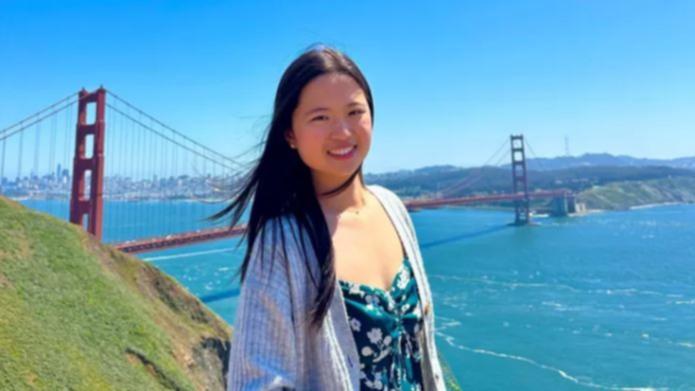Meet the Gen Zers maxing out their retirement savings: ‘It’s no longer chasing money; it’s chasing time’
Today’s young professionals are prioritizing their golden years like never before: The average Gen Zer started saving for retirement at age 22.

Lillian Zhang wasn’t even out of college before she started planning for retirement.
Zhang was 20 years old when she opened her first retirement account, a Roth IRA, after learning about them from personal finance Youtube channels.
She maxed it out for two years using money from her savings and summer internships, and when she got a job after college, switched her focus to maxing out her 401(k).
Sign up to The Nightly's newsletters.
Get the first look at the digital newspaper, curated daily stories and breaking headlines delivered to your inbox.
By continuing you agree to our Terms and Privacy Policy.Zhang, now 24, now has six figures stashed across three different retirement funds. (She recently opened a Simplified Employee Pension, or SEP, IRA for her side hustle as a content creator.)
And she’s part of a growing class of Gen Z retirement super-savers.
Starting earlier and saving more
Today’s young professionals are prioritizing their golden years like never before: The average Gen Zer started saving for retirement at age 22, compared with millennials who started at 27, Gen Xers who started at 31, and baby boomers who started at 37. That’s according to a January survey of 4,500 U.S. adults from Northwestern Mutual.
So what’s pushing young people to stash away money they can’t touch for decades?
Anxiety is one big driver. Many are concerned about stagnating wages in an era of skyrocketing costs of living, says Paloma Thombley, chief human resources officer at Handshake, the jobs site for college students and new grads.
Americans estimate they need to save $1.46 million to live comfortably in retirement, up 53% from 2020, according to Northwestern Mutual.
Gen Zers are witnessing millennials before they struggle to conquer typical financial milestones like paying off student debt and buying a home, Thombley says.
There’s this idea that the government isn’t looking out for your retirement, so you have to do it yourself.
Others see their older family members struggling. More than half of current college undergraduates are either financially supporting their parents or grandparents or expect to do so in the future, according to a December survey of 2,500 students from Handshake. Students of colour, in particular, are more likely to carry this financial burden than white students.
Meanwhile, Zhang, like many of her peers, isn’t confident Social Security will be there by the time she reaches retirement age. Social Security’s trust funds are projected to run out in 2035, at which point benefit cuts will happen unless Congress takes action.
“There’s this idea that the government isn’t looking out for your retirement, so you have to do it yourself,” Zhang says. “If you’re younger and relying on Social Security for a payment, I think that’s really risky.”
Gen Z prioritizes retirement benefits
If young people can’t count on the government for retirement help, they’re turning their attention toward employers who’ll help them foot the bill.
Retirement benefits are among the top priorities when looking for a new job for the Class of 2024, with 65% of college seniors saying they wouldn’t accept a job offer at a company that didn’t offer an employer-sponsored 401(k), according to Handshake.
Employers have played a large role in Gen Z’s super-charged retirement savings so far. According to one recent Vanguard report, workers aged 18 to 24 were 32% more likely to invest in their workplace retirement plan than older colleagues at their age, thanks to more automatic enrollment options and better access to plan information.
That was the case for Genesis Hinckley, 27, who works as a business analyst for Google in Boulder, Colorado.

When she started her job there four years ago, her benefits included working with a financial advisor to go through her benefits package. She learned about her retirement options, which include a 50% employer match on every $1 she contributes, and decided to put 7% of each paycheck toward her 401(k).
She admits she didn’t entirely understand how the process worked before she made her selection, but is of the mindset that “experience is the best teacher.”
“I really think Gen Z is less afraid to invest,” Hinckley says. “It’s like, OK well, we’re going to figure it out.”
Hinckley has gotten savvier over the years and now contributes 18% to a Roth 401(k), 5% into a traditional 401(k) and maxes out her contributions each year. Her balance now sits at roughly $138,000.
‘It’s no longer chasing money; it’s chasing time’
Anxiety aside, many Gen Zers see super-saving for retirement as a way to take control over an uncertain future when the built-in support systems are lacking.
Social media makes the effort feel less lonely. Zhang and Hinckley say peers on YouTube and TikTok taught them what their schools and workplaces didn’t. They learned when it makes sense to invest in a plan pre- or post-tax, how to actually invest your retirement money, and the value of compound interest.
They also see saving for retirement as a yearly goal, not one decade in the making.
For example, Zhang learned in her personal finance class about the benefit of saving in a Roth IRA early when her tax bracket was low. That gave her a sense of urgency to get started quickly before she earned a full-time salary.
Everyone has a sense of what their end of career looks like for them, and [Gen Zers] are thinking about that from day one, which is an interesting shift.
Young professionals have more access to personal finance advice than ever, and “are very aware of opportunities they need to take advantage of and want to make sure they’re not being left behind,” Thombley says.
Much like the workplace and career path in general, Gen Zers are redefining what retirement looks like to them.
“People expect their career journey will look different from their parents,” she says. “Everyone has a sense of what their end of career looks like for them, and [Gen Zers] are thinking about that from day one, which is an interesting shift.”
As for her retirement goals, Zhang is still figuring it out but feels secure she’ll have the funds to dream big. As she sees it, her choices come down to saving aggressively now to have flexibility in the future, and having “the choice to do things you want to do without being down to money.”
Hinckley feels similarly and says saving for retirement doesn’t have to come at a major sacrifice.
“A lot of people think saving toward retirement means you don’t get to enjoy life right now,” she says. “Even though I’m aggressively saving for retirement and investing in real estate, I live a life I love.”
She sees her retirement goals as redefining her own American dream of “having your time back and not making someone else rich.”
That might mean building her own business or passive income streams rather than working a corporate job. Plus, Hinckley adds, “I don’t want to wait to do [my hobbies] when I’m 70.”
“It’s no longer chasing money,” she says. “It’s chasing time.”
